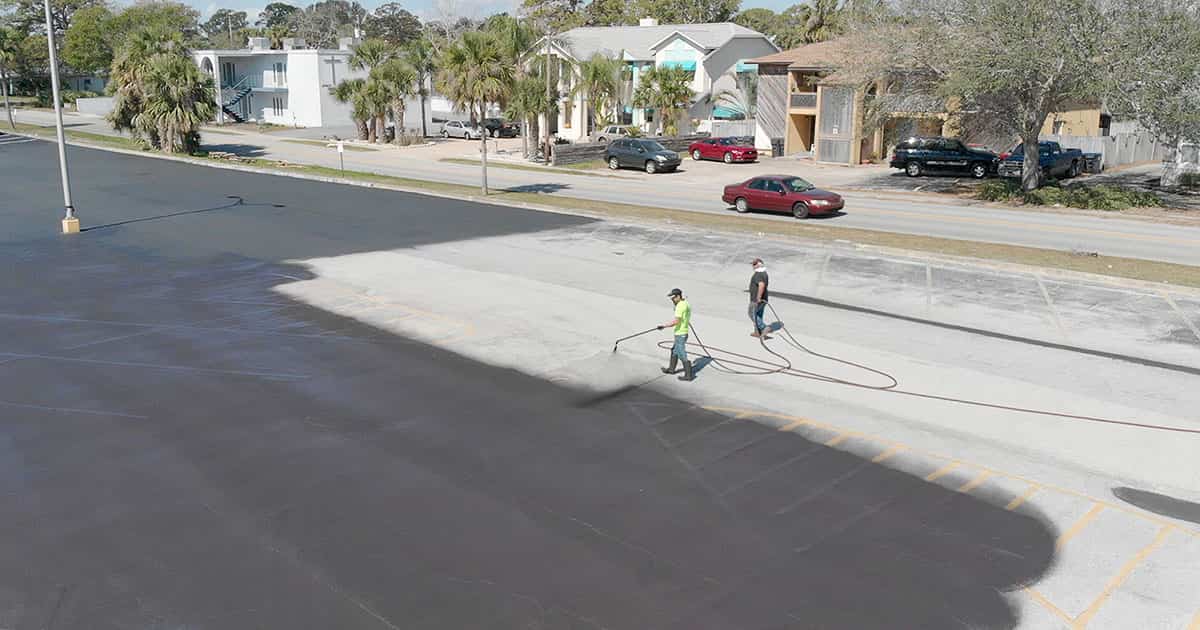Seal in Top Quality: Specialist Solutions for Asphalt Repair and Sealing
Seal in Top Quality: Specialist Solutions for Asphalt Repair and Sealing
Blog Article
Cold Mix Asphalt Vs. Hot Mix Asphalt: Which Is Right for You?

Composition Distinctions
Cold mix asphalt is created by emulsifying the asphalt binder with water and an emulsifying agent before mixing it with aggregate. The hot mix asphalt manufacturing process involves warming the aggregate and asphalt binder independently prior to incorporating them at the asphalt plant.
Furthermore, cold mix asphalt has a tendency to be less thick and extra adaptable than warm mix asphalt. This flexibility makes it better fit for areas with greater degrees of movement, such as driveways or roadways with rush hour. In contrast, warm mix asphalt is known for its high resilience and resistance to rutting and cracking, making it a recommended option for highways and high-traffic roadways where longevity is crucial.
Installment Process Differences
The process of setting up cool mix and warm mix asphalt exhibits notable differences in their needs and procedures. In contrast, hot mix asphalt requires an extra elaborate installation process. Due to the heating requirements, warm mix asphalt setups are normally lugged out by professionals with specialized tools, making certain an extra long-term and structurally sound result.
Toughness and Long Life Elements
When considering asphalt alternatives, toughness and durability are essential factors to review for enduring pavement efficiency. Hot mix asphalt (HMA) is understood for its remarkable resilience and long life.
In terms of longevity, HMA normally outshines CMA due to its remarkable strength and resistance homes. HMA sidewalks have a longer service life, needing much less regular repair work and upkeep, which can translate to set you back financial savings in the lengthy run. Additionally, HMA pavements are a lot more conveniently customizable to satisfy details project demands, additionally boosting their resilience.
Expense Factors To Consider
Thinking about the monetary implications is an essential element when reviewing the choice in between hot mix asphalt (HMA) and cold mix asphalt (CMA) for sidewalk tasks. While the first cost of hot mix asphalt is typically greater than that of chilly mix asphalt, HMA usually offers a more cost-efficient service in the lengthy run due to its exceptional resilience and long life.
In addition to product prices, it's crucial to take into consideration the expenditures connected with setup and upkeep when comparing HMA and CMA. Inevitably, the choice in between HMA and CMA ought to take into account not just the preliminary expense yet also the long-lasting financial implications to establish the most cost-efficient option for the particular pavement project.
Environmental Influence Contrast
Comparison of the ecological influences between warm mix asphalt (HMA) and chilly mix asphalt (CMA) exposes distinctive distinctions in sustainability practices. HMA production requires heats, causing raised power intake and greenhouse gas emissions. The process also releases volatile organic compounds (VOCs) and dangerous air contaminants (HAPs) into the environment. In contrast, CMA is created and applied at lower temperatures, decreasing power use and discharges dramatically. The reduced manufacturing temperatures of CMA result in decreased fuel consumption and lower levels of CO2 emissions, making it a much more eco pleasant alternative.
In addition, making use of CMA typically involves recycling existing asphalt sidewalk, promoting source preservation and minimizing the quantity of waste sent to landfills. This reusing facet better enhances the sustainability of CMA contrasted to HMA. Overall, when taking into consideration the environmental influence, CMA becomes a more ecologically lasting choice because of its lower energy requirements, decreased discharges, and the capacity for reusing existing materials. By choosing CMA over HMA, road building projects can add favorably to environmental preservation efforts.
Conclusion
To conclude, the option in between cool mix asphalt (CMA) and hot mix asphalt (HMA) relies on various factors such as make-up, setup process, resilience, longevity, cost, and environmental influence. cold mix asphalt. While CMA offers a fast and economical remedy for minor repairs, HMA makes certain remarkable durability and longevity for heavy website traffic areas. Take into consideration these aspects thoroughly to determine which kind of asphalt is the right option for your paving needs

Taking into consideration the economic ramifications is an important element when examining the option between hot mix asphalt (HMA) and chilly mix asphalt (CMA) for pavement jobs. While the initial price of hot mix asphalt is generally greater than that of cool mix asphalt, HMA frequently offers a more affordable option in the long run due to its exceptional sturdiness and longevity. asphalt repair.Contrast of the environmental impacts in between warm mix asphalt (HMA) and cold mix asphalt (CMA) exposes distinct distinctions in sustainability practices.In conclusion, the selection between cold mix asphalt (CMA) and hot mix asphalt (HMA) depends on numerous variables such angle parking as composition, setup procedure, longevity, long life, cost, and environmental effect
Report this page